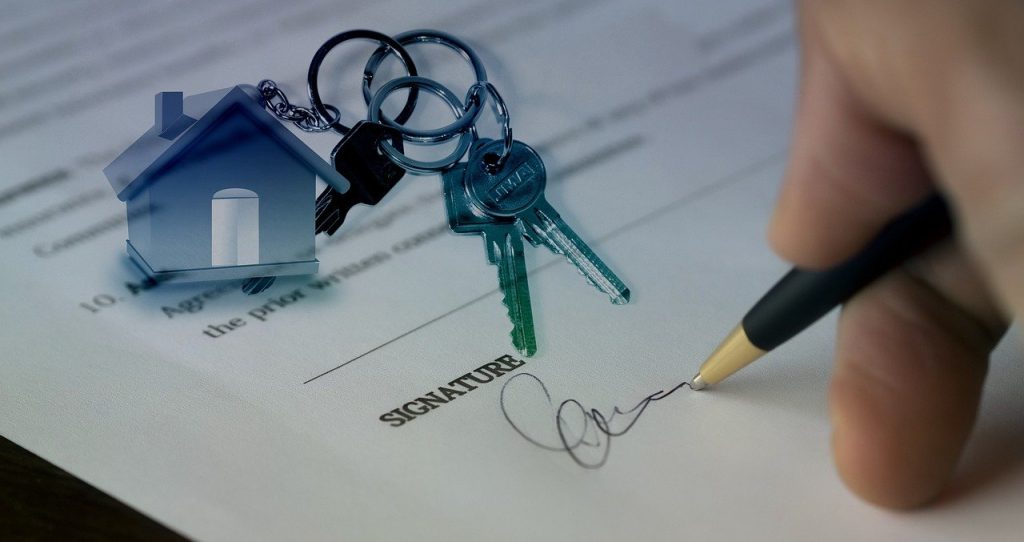The purchase of a property is an important decision, which requires a certain vigilance. This is why, throughout the sale process, it is better to be accompanied by a notary. The presence of this legal expert, who secures the real estate transaction, is also required at the time of signing the deed of sale.
Summary
The role of the notary during the sales agreement
You have found the house that suits you and its owner has agreed to sell it to you. He makes you an offer to buy, which you accept. Seller and buyer then sign a sales agreement.
In this document, the two parties undertake, within a certain period, to complete the sale. They also agree on a price. The signature can be done under private seal, that is to say without the presence of a notary. If it is not mandatory at this stage, the presence of this professional, who knows real estate law perfectly, gives all its legal value to the real estate transaction.
The notary checks the validity of the sales agreement. To do this, he makes sure that all the necessary information is there. These include the civil status of the seller and the buyer, the surface area of the accommodation or the mention of the sale price.
He also checks the presence of suspensive clauses which, before the deed of sale, could prevent the transaction from going through to completion. This would be the case, for example, if the buyer could not obtain a loan.
Furthermore, the notary, as a ministerial officer, is the only person authorized to check the validity of the documents which must appear in the sales agreement. Thus, he ensures that the seller gives the buyer a file of technical diagnoses, in which appears all the real estate diagnoses that the law imposes on the seller.
The notary verifies that the diagnoses have been established in accordance with the regulations in force. If the property is part of a co-ownership, he also ensures that the seller has given the buyer all the documents relating to the operation and financial situation of the co-ownership.
By consulting the site notre-notaire.fr, you will not fail to find, near you, a notary ready to accompany you in this process of real estate sale.
Essential checks
Once the sales agreement has been signed, the notary must still, in order to prepare the sale under the required conditions, check a certain number of documents and complete certain procedures.
This lawyer is thus qualified to check the validity of the seller’s title deed. If the property has been modified or extended, he must ensure that the work has been carried out in compliance with the regulations in force.
The notary also checks the civil status of the parties, on the basis of the identity documents provided. He must also note that the municipality does not intend to exercise a possible right of pre-emption on the property offered for sale.
It is also up to him to check that the accommodation is not burdened with a mortgage that would be higher than the sale price of the property. It is still up to the notary to consult the planning rules applicable to the property and to ensure that it is not burdened by easements, in particular of passage, which would compromise its use.
If the deposit paid by the buyer, when signing the sales agreement, exceeds a certain amount, it must be cashed by the notary on a specific account. Finally, the notary informs the seller and the buyer of the expected time between the compromise and the deed of sale.
At all stages of this sale, the notary remains the privileged interlocutor of the two parties. With his skills and experience, he is in the best position to provide them with the most sound advice.
The notary and the signing of the deed of sale
The notary did all the necessary checks and carried out all the procedures. For his part, the buyer has obtained the loan he needs. All that remains is to sign the deed of sale, which finalizes the transaction.
With the seller and the buyer, it is therefore agreed on a date for the signing of the deed of sale. The notary draws it up and can, at their request, communicate a copy to the two parties. Seller and buyer thus become aware of it and can, if necessary, request modifications.
The day of signing arrives. The notary reads the deed of sale, in the presence of both parties. They are then invited to sign it. By signing, the notary authenticates the deed of sale.
This authentic deed of sale, also called « minute », will allow the notary to publish the sale with the land registration service. It is this process, completed within a certain period of time, which gives the sale its official character. The deed of sale, authenticated by the notary, is then kept by him.
Read also : How to buy a house before you sell yours




